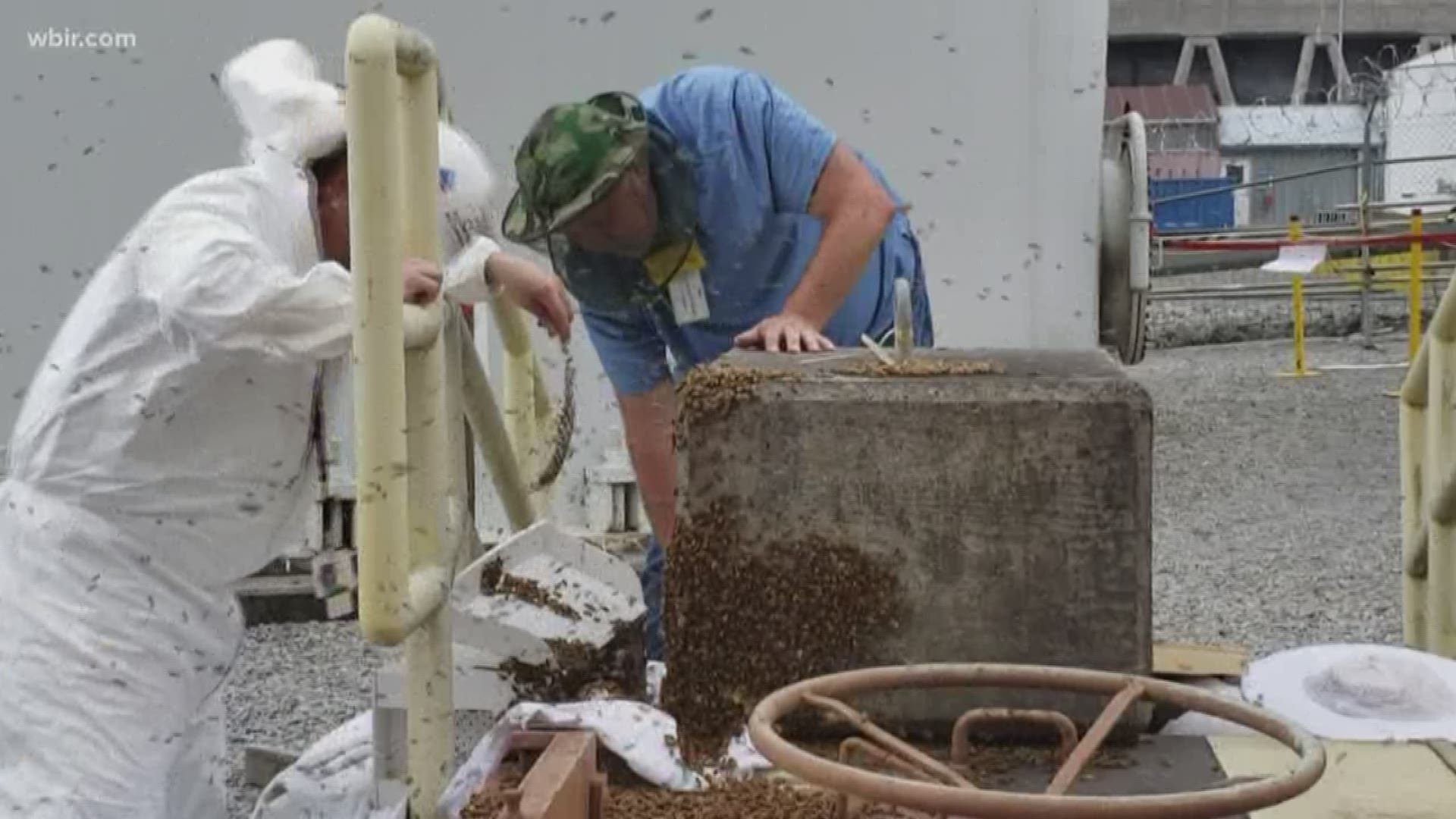RHEA COUNTY, Tenn. — A few thousand bees continue to buzz and thrive in their new home after being discovered at the Watts Barr Nuclear Plant this spring.
No, these aren't a special breed of 'radioactive bees' like you'd hear about in a superhero origin movie. These bees do have impressive pollination powers, though, and they also have a masked dynamic duo to thank for moving them out of harm's way.
Mark Porter saw the swarm of 25,000 bees outside the plant's maintenance building last May.
Thankfully for the bees, Porter was uniquely equipped to not panic at the sight of so many bees. By day, he's a mild-mannered nuclear online scheduler with TVA. But by night (and also by day), he's a beekeeper.
“As a beekeeper, I knew the swarm was a queen and half her colony split off to find a new home,” Porter said. “Most people’s first instinct is to spray them dead, but these pollinators are crucial to our food supply and need to be saved. “
Porter was able to use his powers for good to educate employees on the bee-haviors of bees and their massive importance as pollinators.
The Watts Bar team first roped off the area, and later Porter and fellow beekeeper Billy Thedford brought in a swarm box to relocate the bees to a new home.
The two used a turkey feather the gently brush the bees into the box, and then Thedford relocated the swarm to a new hive at his Spring City home just upriver from the plant.
The TVA said months later -- the rescued bees are thriving. Thedford said he expects to split the Watts Bar bee colony into additional hives before the fall.
Within a few years, the TVA said his goal is for the bees to multiply into dozens of colonies that can be dispersed across Rhea County to benefit the entire community.
“If we treat these bees right, the benefits of this one hive could go on forever,” Thedford said.
Porter said these kinds of swarms are created because the queen bee needs a break from moving.
"The reason that we see swarms is because the queen hasn't flown in a long time. So she gets tired easily. So the whole swarm moves. When the queen gets tired, she stops, everybody sits there and they wait for her," he said.
Porter said another interesting fact is that these bee swarms are less likely to sting because they have no hive to protect and they are usually gorging on honey before making the long trip to destinations unknown.
Diane Pace, president of the Rhea County Beekeepers Association, said people should call in the beekeeping experts if they encounter a swarm.
Timeliness is important when dealing with these swarms, as she said the group will typically move on if they aren't caught by nightfall -- reducing opportunities to bring the bees to a more controlled environment where they can better thrive and replenish their numbers.
For more information about beekeeping, the TVA said to visit the Tennessee Beekeepers Association’s webpage. The association keeps an online directory listing the names and numbers of beekeepers near you, as well as tons of bee-sources for local events, classes and club meetings across the state.

